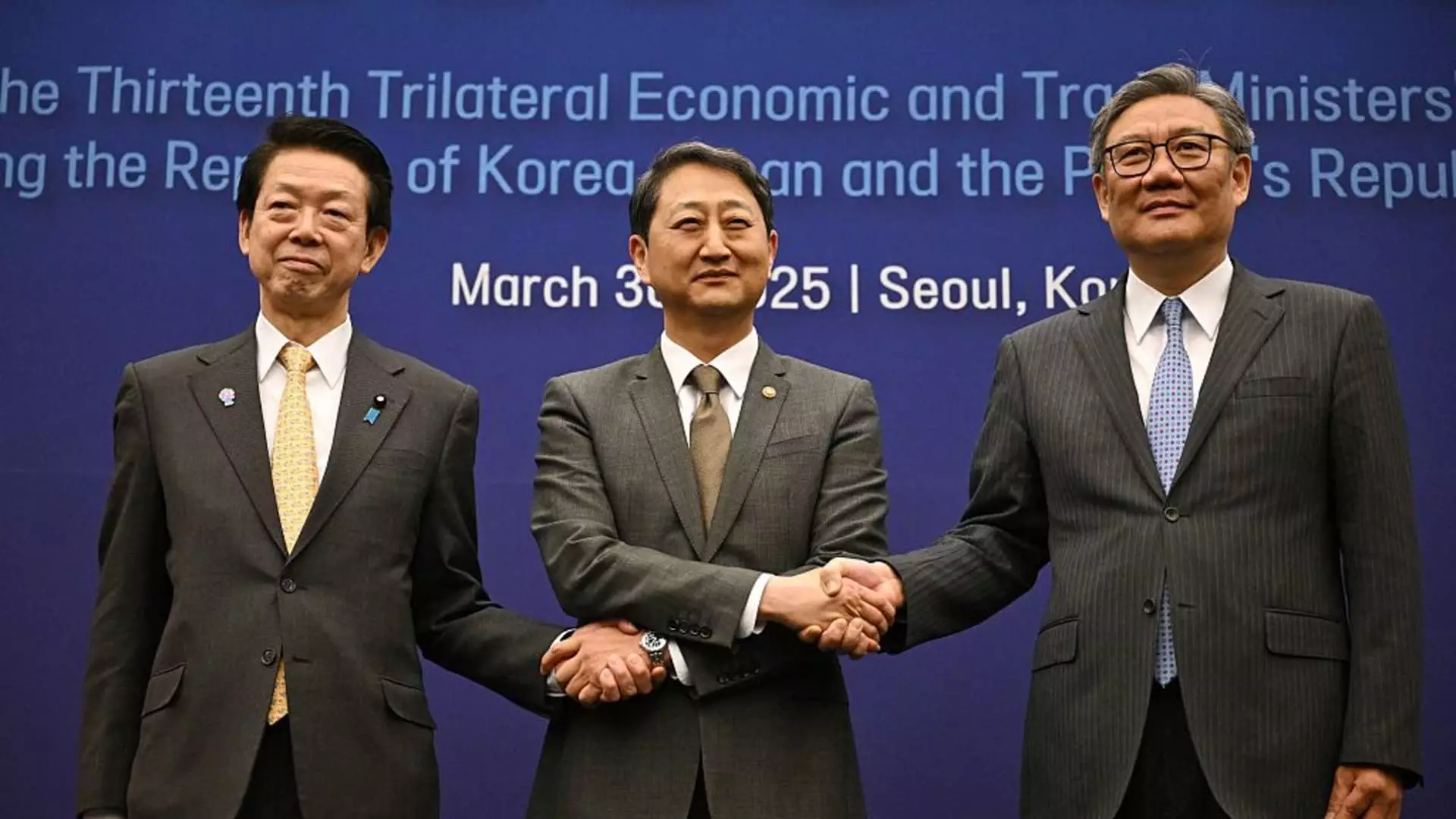In an age where global interdependence is often touted as a cornerstone of political stability, the recent economic dialogue among South Korea, China, and Japan serves as a testament to the disarray that political posturing can inflict on pragmatic trade relations. This meeting—marking the first in half a decade—comes in an anxious backdrop of U.S. tariffs announced by President Donald Trump, which serve as a clumsy reminder of the fragility underlying the fabric of international commerce in the region.
The juxtaposition stands out: three powerhouse economies, each laden with its unique set of challenges and historical animosities, struggling to forge a united front against external pressures. The sheer irony of their collective commitment toward enhancing trade relations, whilst grappling with identical fears of tariffs and sanctions emanating from Washington, reveals not just a dire need for cooperation but also echoes the fundamental flaws in our global economic structures.
The Need for Unity
Trade ministers from the three nations emphasized the urgency of strengthening the Regional Comprehensive Economic Partnership (RCEP) and pushing ahead with talks for a trilateral free-trade agreement. While the call for an integrated regional economy seems laudable on its surface, one has to wonder: can these nations rise above their historical grievances and collaborate in good faith?
This question looms larger given the entrenched territorial disputes and the ongoing fallout from Japan’s controversial release of Fukushima’s nuclear wastewater. The atmosphere is thick with distrust, making it difficult to frame a cohesive strategy on cooperation. It is here that the ministers’ principles often feel painfully disconnected from the realities of historical rivalry, which could derail any attempts at fruitful collaboration.
Challenges Ahead
The meeting took place mere days before Trump’s ‘Liberation Day’ regarding additional tariffs, starkly illustrating how external whims can abruptly shift the course of diplomacy. South Korea and Japan, both deeply entwined in the automotive supply chain, now wrestle with the imminent consequences of these tariffs, which disproportionately threaten their economies. Being among the leading vehicle exporters to the U.S., they find themselves cornered; this is more than just a market issue—it’s a pivotal moment requiring solidarity in response to external threats.
As Ahn Duk-geun stated, it is necessary to create “a framework for expanding trade cooperation.” Categorically, the need for a robust and cohesive mechanism isn’t just desirable; it’s essential for survival in an age where political shifts can dismantle entire industries overnight. However, this calls for more than just declared intentions; substantial action is required if the dialogue is to evolve into a meaningful partnership.
Hope Amidst Skepticism
Optimism runs thin in light of historical standoffs, yet there’s glimmering hope. The upcoming ministerial meeting scheduled in Japan could present an opportunity for renewed dialogues and reaffirmation of mutual interests. Asia stands at a crossroads; refusing to collaborate isn’t an option, and the stakes have never been higher. The dismantlement of trade barriers could not only mitigate the destructive effects of U.S. policy but also lay a foundation of trust that might transcend their discord.
In essence, while the dialogue among South Korea, China, and Japan may appear as a mere ceremonial display of unity against external pressures, it’s an urgent call to action—a reminder that in a world increasingly shaped by divisive politics, the path to prosperity might just lie in collective resilience.

Leave a Reply